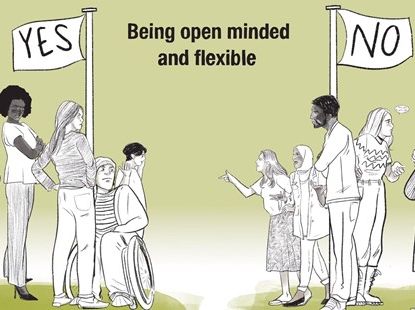Faith &Belief Forum Schools
The Faith & Belief forum works towards a connected and supportive society where people of different faiths, beliefs and cultures have strong, productive and lasting relations. We are delighted to provide a suite of lesson plans with accompanying films, presentations and worksheets for KS3. Distilling 20 years of The Faith & Belief Forum's knowledge of equipping learners with tools for safe and meaningful dialogue.




















